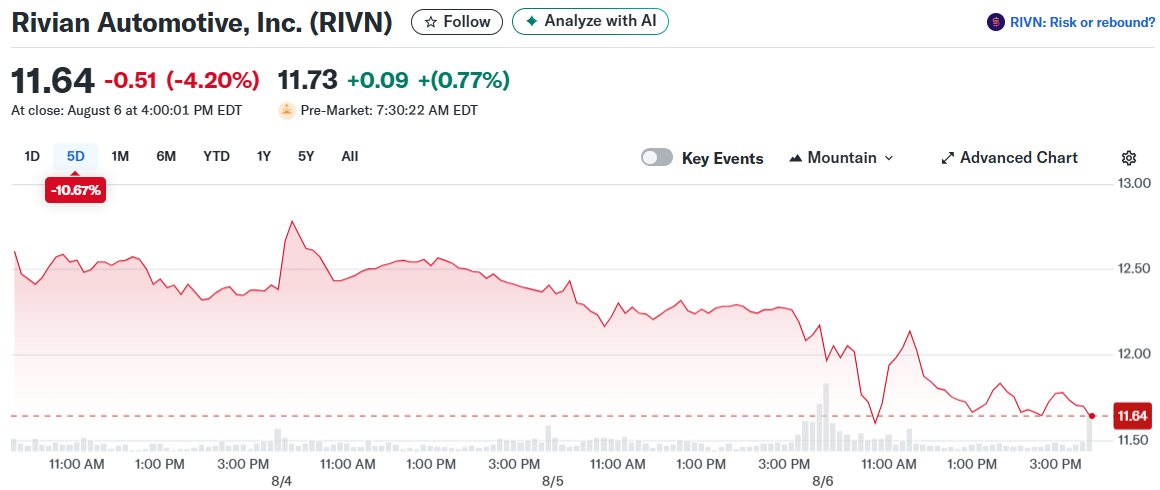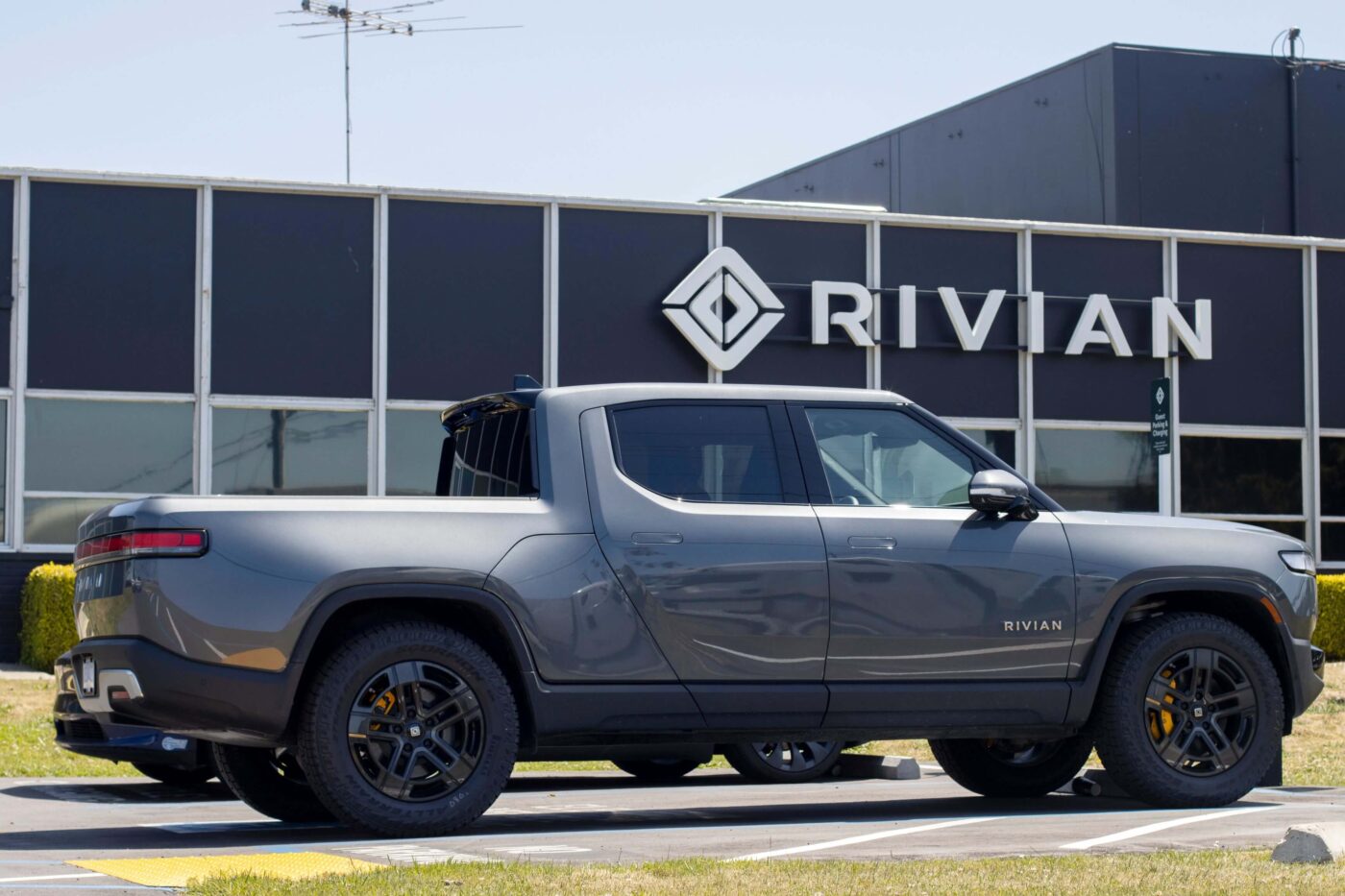TLDR
- Rivian increased its expected annual loss to $2 billion-$2.25 billion from $1.7 billion-$1.9 billion due to ended EV tax credits
- Federal EV tax credits expired September 30 under President Trump’s legislation, with home-charging incentives ending next year
- Rivian stock fell 4.20% while Lucid dropped 9.7% following the announcement
- Wall Street analysts worry the credit loss could hurt demand for Rivian’s upcoming R2 SUV and force price cuts
- Despite concerns, analysts maintain a Hold consensus with $14.92 average price target implying 28.2% upside
Rivian stock declined Wednesday as the electric vehicle manufacturer raised its 2025 loss forecast following the expiration of federal EV tax credits. The company now expects to lose $2 billion to $2.25 billion in adjusted EBITDA this year.

The Rivian stock price fell 4.20% to $11.64 after the announcement. The previous forecast called for losses between $1.7 billion and $1.9 billion for 2025.
The updated Rivian stock outlook reflects both the end of EV purchase credits and the company’s second-quarter performance. Under President Trump’s recently passed legislation, tax credits for buying electric vehicles expired on September 30.
Incentives for purchasing and installing home-charging stations will end next year. The policy change creates new challenges for Rivian stock and other EV manufacturers.
Fellow electric vehicle maker Lucid saw even steeper declines in Wednesday trading. Lucid stock dropped 9.7% to $2.19 as investors reassessed EV sector prospects.
Japan’s Honda also reported provisions related to the end of U.S. EV tax credits. The automaker took a 113 billion yen hit from its electric vehicle program, showing the global impact of the policy change.
The Rivian stock decline comes as the company navigates a challenging environment for electric vehicle sales. Without federal tax incentives, EV manufacturers may need to lower prices to maintain demand.
Wall Street Analysts Reassess Rivian Stock Price Target
Wall Street analysts are expressing concerns about how the credit loss will affect Rivian stock performance. Many fear the change could hurt demand for the company’s upcoming R2 SUV launch.
UBS analyst Joseph Spak noted that while Rivian stock still aims for EBITDA breakeven by 2027, losing the tax credits represents a setback. He expects the market will wait for evidence that management can offset this headwind.
Cantor analyst Andres Sheppard maintained a Neutral rating on Rivian stock after citing multiple concerns. He pointed to weaker delivery expectations, economic uncertainty, and tariffs as challenges facing the EV manufacturer.
Sheppard also questioned Rivian’s position in autonomous driving and charging infrastructure technology. He criticized the company’s disappointing delivery guidance and lower-than-expected gross margins.
The analyst did acknowledge some positives for Rivian stock. These include the company’s partnership with Amazon and its joint venture with Volkswagen, which could provide stability.
The loss of federal EV tax credits creates pricing pressure across the electric vehicle sector. Rivian stock investors are watching how the company adapts to this new environment.
Rivian Stock Bulls Remain Optimistic Despite Challenges
Not all analysts are pessimistic about Rivian stock prospects following the tax credit expiration. Wedbush’s Dan Ives called the company a “work in progress” but maintained an Outperform rating.
Ives noted that Rivian kept its 2025 delivery forecast while adjusting its EBITDA target for the loss of tax credits. He sees this as a reasonable response to economic challenges facing the EV sector.
The analyst maintained his $16 price target on Rivian stock. This represents potential upside from current levels despite recent weakness in electric vehicle stocks.
Needham’s Chris Pierce also reiterated a Buy rating on Rivian stock. He cited the company’s strong cash position and vertically integrated manufacturing structure as competitive advantages.
Pierce expects improvements in cost efficiency when the R2 platform launches in early 2026. This new vehicle line could help drive better margins for Rivian stock performance.
The R2 SUV represents a crucial product launch for Rivian stock investors. The vehicle targets a broader consumer market than the company’s current truck offerings.

Wall Street maintains a Hold consensus on Rivian stock despite mixed analyst opinions. Seven analysts rate RIVN stock a Buy, 15 have Hold ratings, and three recommend selling.
The average Rivian stock price target sits at $14.92 per share. This implies 28.2% upside potential from Wednesday’s closing price of $11.64, suggesting analysts see recovery potential despite current headwinds.






